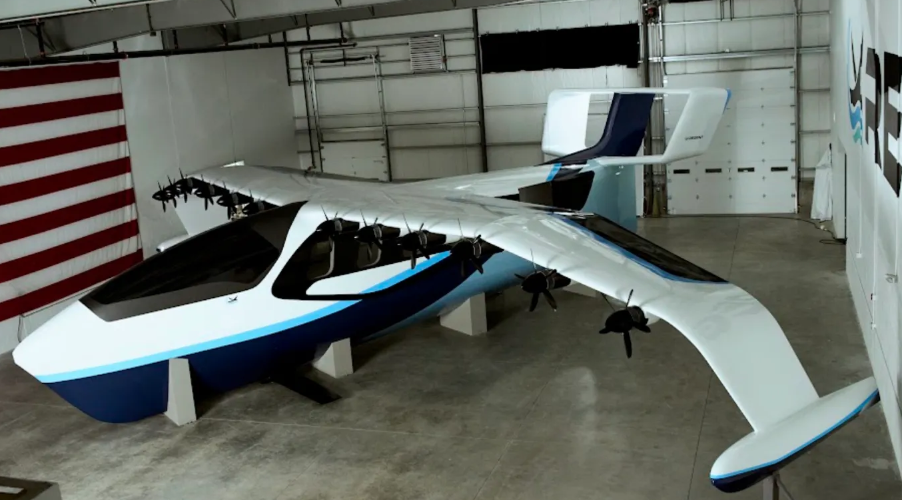Regent, a startup focused on electric seaglider transportation for people and cargo, has secured $60 million in venture funding and formed a partnership with Japan Airlines to explore bringing its electric ferries to Japan’s waterways.
The series A funding round was co-led by 8090 Industries and Founders Fund, with participation from Japan Airlines Innovation Fund and Point72 Ventures, among others. This funding brings Regent’s total capital raised to $90 million. Regent recently achieved significant milestones, including successfully testing a quarter-scale prototype of its seaglider, demonstrating its ability to float, foil, and fly.
The commercial version, called the Viceroy, is expected to fly higher above water at speeds of up to 180 mph with a range of approximately 180 miles on its battery power. The company has also developed a full-scale mockup of the Viceroy and a simulation room for an immersive flying experience.
In the future, travelers will have the convenience of boarding Regent seagliders from docks, much like traditional ferries or water taxis. Apart from serving coastal communities, Regent also intends to supply seagliders to organizations engaged in cargo transportation, search and rescue operations, offshore logistics, as well as security and defense services.
Several airlines and ferry operators, including Mesa Airlines, Brittany Ferries, and FRS, have already inked agreements to purchase Regent’s seagliders. The company reports having orders for over 500 seagliders, representing a prospective revenue of around $8 billion. The first production Viceroy is slated for delivery to Southern Airways, which plans to operate it under their Mokulele Airlines brand, serving inter-island routes in Hawaii.
Regent will allocate its recent funding round towards expanding its workforce, constructing and testing full-scale prototypes of the Viceroy, and implementing all necessary safety systems for passenger-carrying seaglider operations, as per CEO Thalheimer.
Currently employing 55 full-time staff, the company has successfully attracted talent from renowned entities like SpaceX and Bureau Veritas, an international ship and vessel regulatory authority.
In the long term, Regent is in the early stages of developing a 100-seat seaglider called the Monarch. Factoring in regulatory approvals, the company anticipates having its 12-seat Viceroy seagliders in production and operational within the next two to three years, with the larger Monarch seagliders expected to be in service by 2030.
Rayyan Islam, a general partner at 8090 Industries and co-leader of the series A investment in Regent, explained to CNBC that his firm supported the startup due to the growing demand for its seagliders and the early team’s successful prototyping efforts that demonstrated the feasibility of the Viceroy.
Islam’s firm recognizes an emerging industrial revolution characterized by a universal need for “decarbonization” across all sectors, driven by both environmental responsibility and sound business practices. He believes that Regent’s seagliders have the potential to significantly reduce greenhouse gas emissions from short-haul flights within the aviation industry, as well as emissions from ferries and water taxis, which typically rely on diesel power while operating alongside existing infrastructure.
Furthermore, Islam envisions Regent’s seagliders playing a vital role in transporting people and equipment for the construction, monitoring, and maintenance of various offshore energy projects, ranging from aging oil rigs to massive wind turbines.
(Source: Kirsten Korosec | TechCrunch | Lora Kolodny | CNBC)









